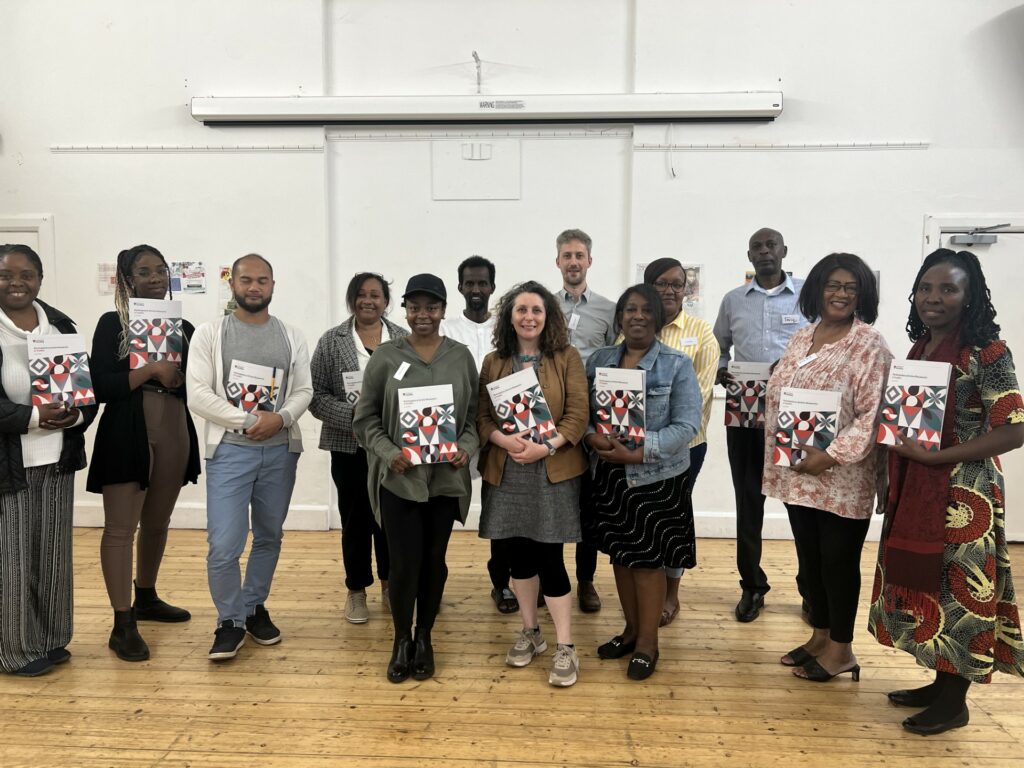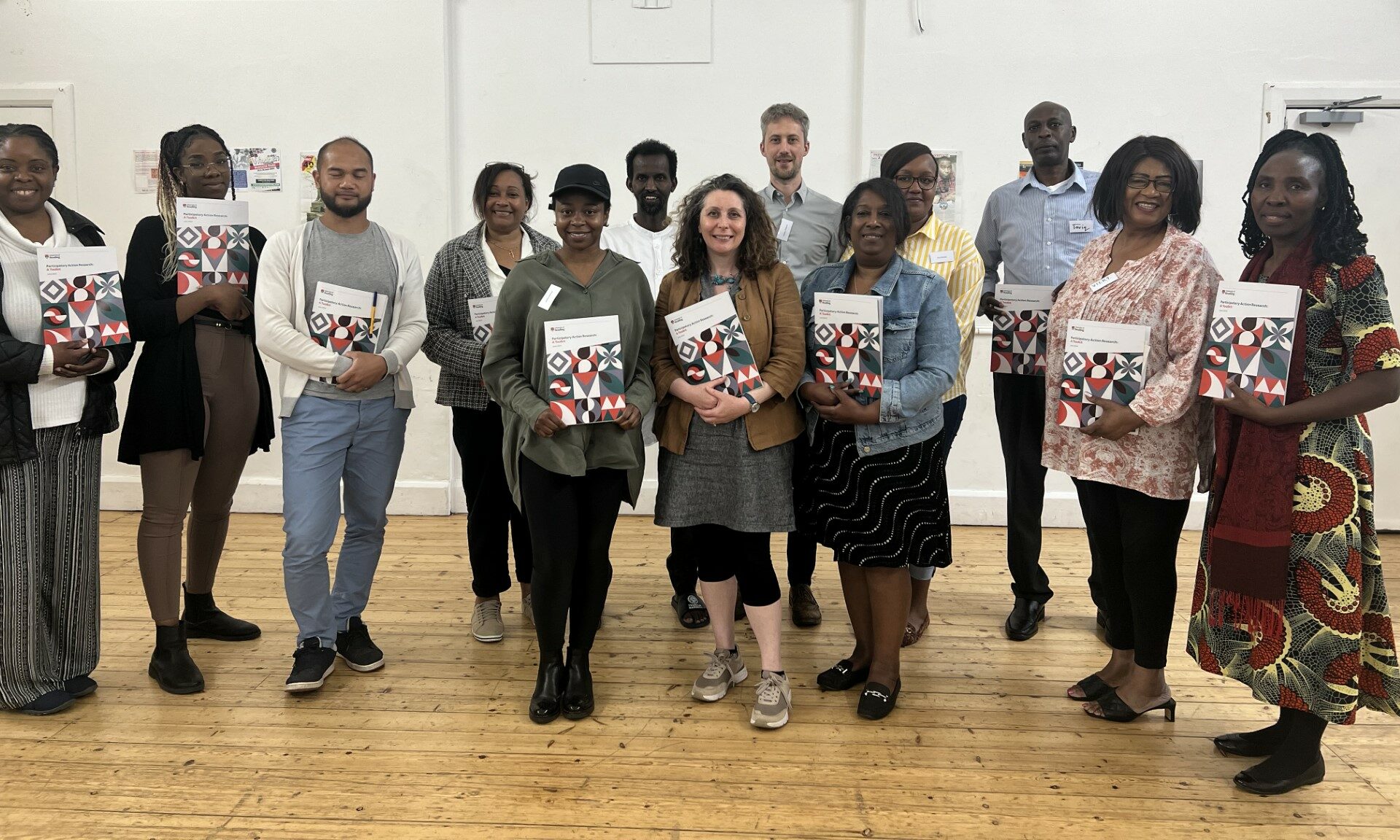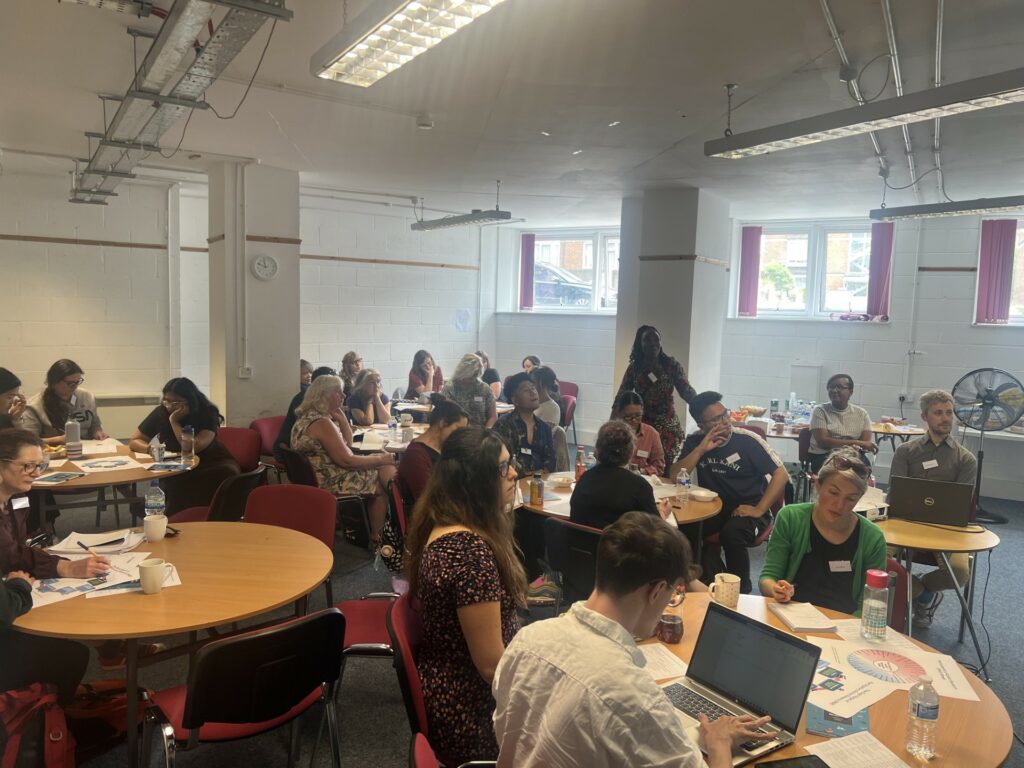Over thirty community researchers, from organisations in the South East of England, are investigating the impact of the cost of living crisis on local people. The project, which is funded by NHS England and delivered by the University of Reading and the Scottish Community Development Centre, aims to inform local health and care services.

The project uses a Community Participatory Action Research (CPAR) approach which places control of the research topic in the hands of those experiencing the issues being explored. It situates knowledge generation at the local level, breaking down barriers between communities and service providers with the aim of achieving lasting social change.
The cost of living crisis, which has made everyday essentials – including food and energy – unaffordable, has been described as a public health emergency. This research gives voice to the people experiencing impacts on their health and wellbeing. It examines the implications for health and social care services and seeks to translate findings into actions by involving cross-sector stakeholders – including local authorities and private care providers – throughout the research process.
Developing community research and building networks for social change
This project builds on previous community research into tackling health inequalities which took place in 2021–22. It uses the 8-stage method developed by the University of Reading and partners in Participatory Action Research: A Toolkit.
Training has included peer mentoring and co-production of training sessions and materials by community researchers involved in the original project, in order to learn valuable lessons from their lived experiences, build sustainable CPAR networks, and support the continued development of community research and the advocacy skills that are essential for social change and impact.
The Institute for Voluntary Action Research (IVAR) is also supporting the community researchers to connect with stakeholders and achieve change through their findings.
Impact of the cost of living crisis – research topics
Recapture Life in Hampshire is focusing on unpaid carers, families of people living with dementia, and people with dementia, including early onset dementia.
Hope in Portsmouth is listening to the stories of people aged 60 and over, and exploring child poverty in deprived areas, including families accessing foodbanks.
Home-Start Portsmouth is looking at the health and happiness of Portsmouth families and the impact of a lack of dental care on physical and mental wellbeing.
Diversity Resource International is investigating ethnic minority communities’ experiences of the cost of living crisis, including mental health, lifestyle and medical costs.
Independent Lives is focusing on disabled people and carers in Sussex.
Wellsbourne Healthcare CIC is looking at disadvantaged areas of Brighton, how existing barriers impact on people’s ability to access support, and the role of community and voluntary sector support in addressing inequality.
Bognor Regis Foodbank is exploring the main drivers to rising demand for its services.
Fourth Wall Folkestone is using creative methods in its gallery to explore needs and barriers linked to the cost of living and mental health.
Folkestone Nepalese Community is focusing on the stories of elderly Nepalese people, especially wives and widows of Gurkha veterans, looking at issues including food, fuel, health and wellbeing.
St Vincent and the Grenadines 2nd Generation is exploring links between the cost of living and health inequalities among African, Caribbean and Indian communities, with an additional focus on maternal health.
Caribbean Community Lunch Club is focusing on the mental health of the Black community in Aylesbury.
Healthwatch Oxfordshire and Oxford Community Action are exploring the reasons why people attend their foodbank, whether it suits their needs and how to improve the service.
Find out more
For more information, contact Dr Esther Oenga, Community Participatory Action Research (CPAR) Fellow (e.k.oenga@reading.ac.uk), or Dr Sally Lloyd-Evans, Public Engagement with Community Research Fellow and Associate Professor in Human Geography (s.lloyd-evans@reading.ac.uk).
Download the PAR toolkit here or from the University’s central archive, CenTAUR, here: https://doi.org/10.48683/1926.00113719.


